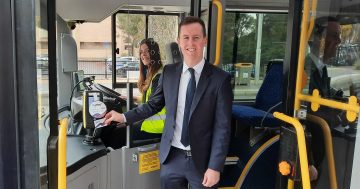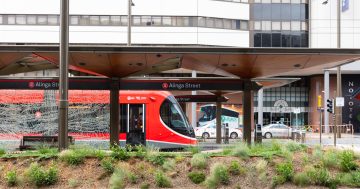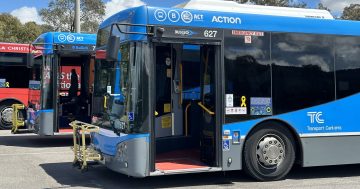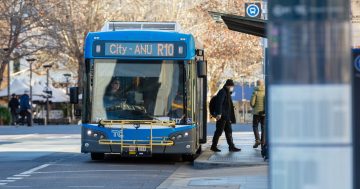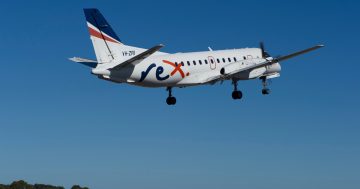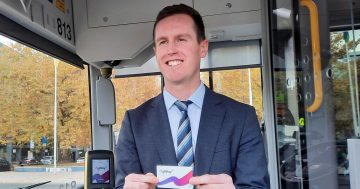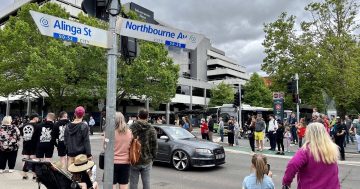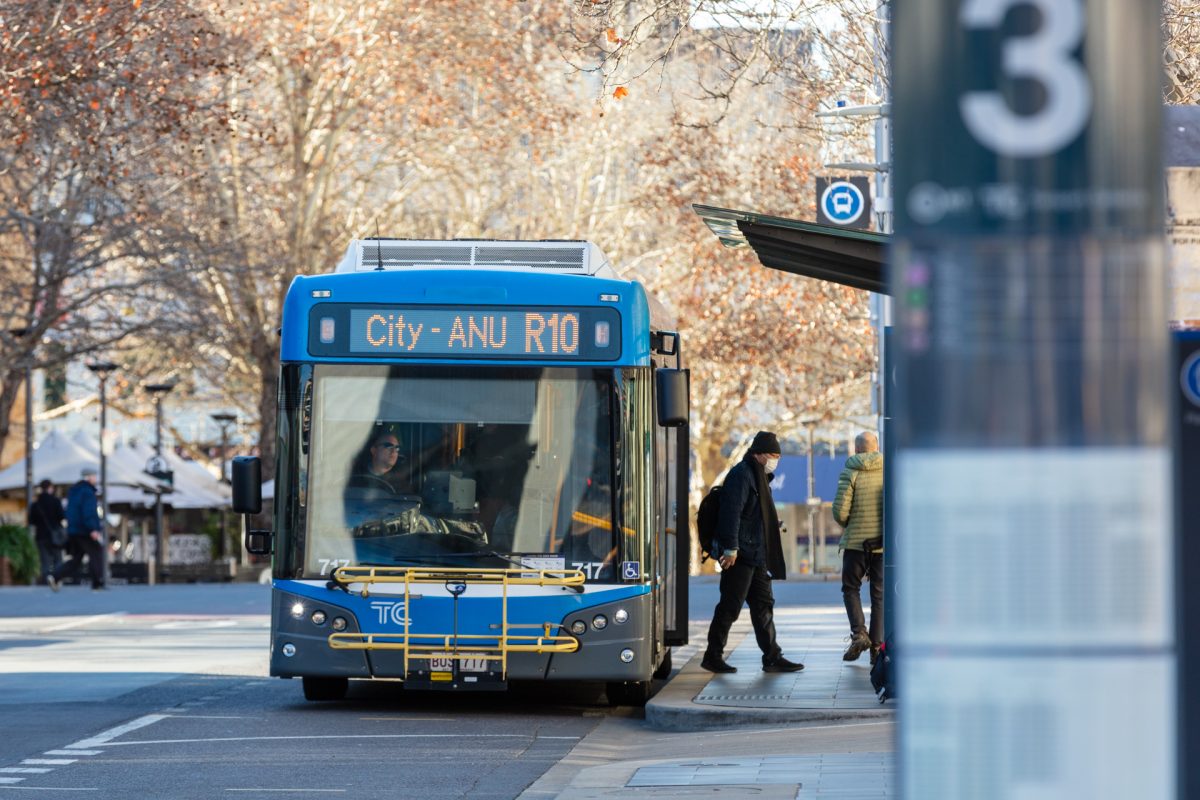
Is there an argument for making public transport free in Canberra? Photo: Michelle Kroll.
Canberra’s public transport system is heavily subsidised by ratepayers, who also wear the growing cost of fare collection and enforcement. So why not just scrap ticketing systems and make buses and trams free forever?
That was the Belco Party’s argument put forward this week. It doesn’t want the temporary fare-free arrangement currently in place to end.
“One of the strongest arguments for free public transport is the significant cost of operating the ticketing and fare system,” Belco Party candidate for Ginninderra Angela Lount said.
“Currently the fare system has considerable overhead, which is not fully justified when so many passengers – students, seniors, and other exempt groups – already ride for free.
“The logic is clear, if we’re already exempting large portions of the population from paying fares, and the cost of operating the system is high, why not eliminate fares altogether? We could simplify the system and redirect resources more efficiently.
“This would make free public transport a financially sound choice… Luxembourg has successfully implemented free public transport nationwide, and the system works well there, leading to fewer cars on the road, reduced congestion, and improved air quality.”
University of Canberra transport expert Dr Michael de Percy is not sure free public transport would mean fewer cars on our roads.
“One of the key things about public transport is it’s not about the price, it’s about the frequency and availability. Unless buses and trams are going to run regularly and from locations that suit people, there’s not going to be more of a take-up,” he told Region.
“Public transport is already cheaper than the cost of driving and parking etc. So why aren’t more people using it? It’s because the buses and trams aren’t frequent enough and don’t go to where people want to go.
“When I lived in Palmerston, it took me an hour to get to work by bus, but it was a 10-minute drive by car. I was prepared to pay for the convenience.”
The Productivity Commission expressed a similar view when it investigated this issue in 2021, concluding that free public transport in Australian cities was “unwise”.
“[In places] where free fares were introduced, patronage increased, but usually made little difference to road congestion and sometimes had the perverse impacts of shifting people from walking and cycling to public transport,” its research paper stated.

Angela Lount is pushing for free public transport. Photo: Facebook.
Some groups, though, have argued the social benefits of free public transport make it a worthwhile policy.
Advocacy of Inclusion (AFI), a peak body representing people with disability, also called on the ACT Government to abolish bus and tram fares earlier this year.
“Fare-free periods like this remind us that transport is a public good and the fares do not cover the costs of running the network while fare collection itself has a cost,” AFI head of policy Craig Wallace said.
“On the other hand, there are cost benefits in unlocking social and economic participation by making it easier and freer for people to travel, especially those with transport disadvantage.”
Dr de Percy said the policy would have benefits for certain groups but could disadvantage others.
“It would be annoying for people living in areas where there’s no public transport because they’re effectively paying for someone else to have a cheaper trip to work,” he said.
The average government subsidy per person boarding a vehicle is $6.80, according to the Transport Canberra and City Services Annual Report 2021-22.
Dr de Percy said about 72 per cent of the cost of ACT public transport was currently met by ratepayers.
“Government debt is projected to cost $2 million a day in interest alone… increasing the current subsidy by 28 per cent will mean taxpayers have to fund it and it will increase the debt further.”












